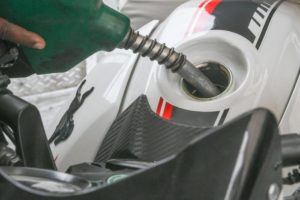Currently, E&P firms are allowed to sell their crude at parity with its international price

To deal with the fuel crisis, recently the Modi government has deregulated sale of domestically-produced crude oil; and imposed a cess, or windfall tax, of Rs 23,250 per tonne on crude oil and a special additional excise duty (SAED) of Rs 6 per litre. and Rs 13 per litre on exports of petrol and diesel respectively. On July 20, the SAED on petrol was removed and on diesel was cut to Rs 11 per litre.
On on one hand, it expects exploration and production (E&P) companies like Oil India Limited (OIL), Oil and Natural Gas Corporation (ONGC), and Cairn Oil and Gas to increase the domestic production of crude oil and reduce the import of costly oil from global suppliers, while on the other, expects the companies to curb fuel shortages in the domestic market. The measures don’t help.
A condition under the extant arrangements in Production Sharing Contracts (PSC) requires the operator to sell crude oil to the government or its nominee or government companies only. (Every company with the rights to explore oil from a field is required to sign a PSC that lays down the terms and conditions for E&P and marketing of the produce there from.)
So far, this meant that the domestic crude could only be supplied to refineries of Indian Oil Corporation Limited (IOCL), and Bharat Petroleum Corporation Limited (BPCL), etc., which are majority-owned and controlled by the Government. Effective from October 1, 2022, this condition has been waived, which implies that the E&P firms will have the freedom to sell crude oil to whosoever they want. As the domestic crude constitutes barely 15% of India’s demand, and public sector refineries namely, IOCL/BPCL process the bulk of it, prima facie E&P firms should have no problem in selling even under the existing dispensation. But, such sales are generally hamstrung by bureaucratic red tape. Giving them freedom to sell, including to private refineries will unshackle them and remove a major hurdle to increasing production.
Currently, E&P firms are allowed to sell their crude at parity with its international price. The steep increase in international price has meant corresponding increase in the realisation, and in turn, profits of these firms. This is due to the fortuitous circumstance (read: Ukraine war) of a big slice of crude getting cut off from the global supply. These are ‘windfall gains’, a portion of which is being mopped up by levying a windfall tax on domestic crude.
However, a stipulation that “no cess will be imposed on such quantity of crude that is produced in excess of last year’s production by a crude producer” was avoidable. It will prompt producers to show more quantity under the ‘incremental’ head to escape levy of cess, which defeats the very purpose of the move.
Freedom to sell crude by itself will not galvanise E&P firms to boost domestic output. This is because a majority of the fields produce both crude oil and natural gas (NG) and the latter is subject to controls — both on pricing and selling.
The Government hands out at least half-a-dozen prices. As a bulk of NG production is covered by an administered price, the same is applied even to deep and ultra-deep water fields that can get market-based price. Furthermore, who gets to sell how much gas and from which field is decided by an inter-ministerial committee. It creates a fertile ground for intense lobbying to get the best deal in terms of price and the quantity sold. The focus of the E&P firms, therefore, shifts to managing officials rather than maximising production.
Coming to petrol and diesel, though deregulated, de facto PSUs like IOCL and BPCL, which account for 90% of retail outlets, are not free to fix their prices. The prices are often suppressed. For instance, the current pump price of diesel in Delhi at Rs 89 per litre is around Rs 25 less than the international parity price when co-related. Unable to match the PSU price, private refiners such as Reliance Industries (RIL) and Nayara Energy cut supplies to the domestic market. In turn, this has led to fuel shortages in Rajasthan, Madhya Pradesh, and Gujarat among other states.
To alleviate shortage, the Government proposed to tax fuel export. It also wants exporters to supply 30% of the quantity of diesel exported during 2022-23 in the domestic market. It is missing the wood for the trees.
When, domestic prices are artificially kept below the international price and a private refiner stands to gain by exporting, a tax on exports will not deter him; forcing him to sell a specified percentage in the domestic market will prompt him to fudge numbers.
Instead of ad hoc solutions, the Modi government should initiate holistic reforms — free the hydrocarbon sector covering the entire supply chain from E&P to refining and marketing.
(The writer is a policy analyst.)
https://www.deccanherald.com/opinion/in-perspective/fuel-crisis-government-must-shed-adhocism-1129201.html